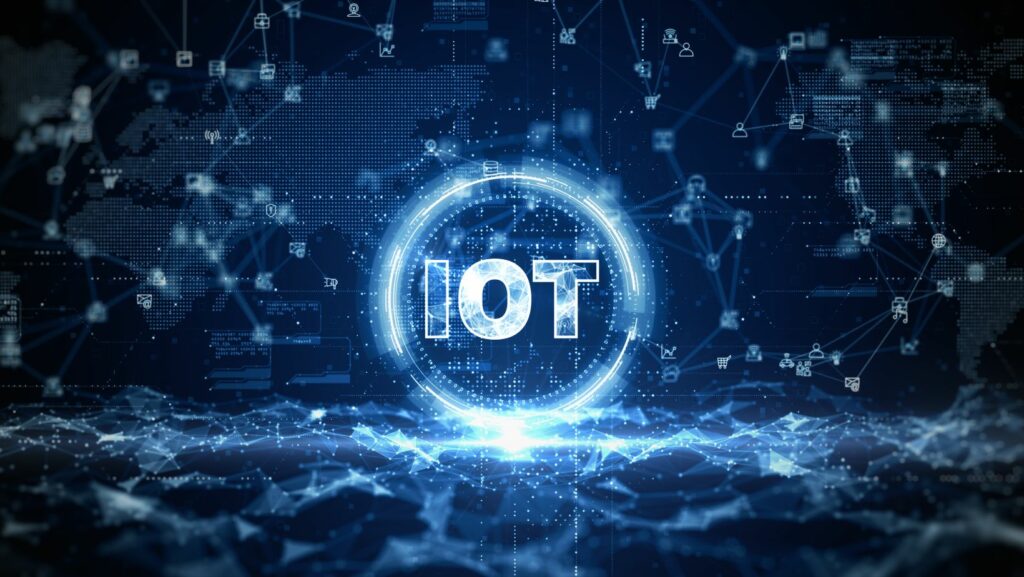How Can you Check Data on Devices Connected Through an IOT Network?
How can you check data on devices connected through an IoT network? This question has been perplexing me lately as I dive into the world of interconnected devices. With the rapid growth of the Internet of Things (IoT), it’s becoming increasingly important to have a clear understanding of how to monitor and analyze the data flowing through these networks.
One method for checking data on devices connected through an IoT network is by using network monitoring tools. These tools allow you to capture and analyze network traffic, providing valuable insights into the behavior and performance of your IoT devices. By examining packet-level details, you can identify any anomalies or potential security threats that may be affecting your network.
Another approach is leveraging application programming interfaces (APIs) provided by IoT device manufacturers. These APIs enable developers to access and retrieve real-time data from individual devices, allowing for granular monitoring and control. With direct access to device-specific information, you can gain deeper visibility into the status, health, and performance metrics of each connected device.
In conclusion, there are multiple methods available for checking data on devices connected through an IoT network. Whether it’s through network monitoring tools or utilizing manufacturer-provided APIs, having a solid understanding of these techniques will empower you to effectively manage your IoT ecosystem and ensure optimal performance and security.
What is an IOT Network?
An IOT network, or Internet of Things network, refers to a system of interconnected devices that communicate and share data with each other through the internet. It is a vast network that allows various devices, such as smartphones, smart home appliances, wearables, sensors, and even industrial machinery, to connect and exchange information seamlessly.
In an IOT network, these connected devices can be controlled remotely and can collect and transmit data in real-time. This enables them to interact with each other autonomously or respond to commands from users. The underlying technology that enables this connectivity is typically wireless communication protocols like Wi-Fi, Bluetooth Low Energy (BLE), Zigbee, or cellular networks.
The concept of an IOT network has revolutionized numerous industries by enhancing efficiency, automation capabilities, and providing valuable insights from collected data. For example, in smart homes equipped with IOT devices like thermostats or security cameras, homeowners can monitor their energy usage or receive alerts about potential security breaches directly on their smartphones.
In industrial settings, companies utilize IOT networks to optimize production processes by monitoring machine performance in real-time. This helps them identify maintenance needs promptly or predict equipment failures before they occur. Such proactive measures save time and resources while minimizing disruptions to operations.
As the number of connected devices grows exponentially every year, the potential applications for IOT networks continue to expand across industries ranging from healthcare and agriculture to transportation and retail. However, alongside the benefits come concerns regarding cybersecurity risks and privacy issues associated with the extensive collection of personal data.

Importance of Data Checking in an IoT Network
In the rapidly evolving world of IoT, where countless devices are interconnected, the importance of data checking cannot be overstated. Ensuring the accuracy and reliability of data flowing through an IoT network is crucial for seamless operations and optimal performance. Let’s delve into why data checking holds such significance in this interconnected landscape.
- Identifying Anomalies and Malicious Activity: With the proliferation of connected devices, there is a higher risk of anomalies or malicious activity within an IoT network. Regularly checking data allows us to identify any abnormal patterns or suspicious behaviors that may indicate a security breach. By promptly detecting such anomalies, we can take necessary measures to mitigate risks and safeguard critical systems from potential threats.
- Maintaining Data Integrity: Data integrity is paramount in an IoT network as it directly impacts decision-making processes and operational efficiency. Through rigorous data checking methods, we can ensure that information remains accurate, consistent, and free from errors or corruptions caused by transmission issues or device malfunctions. This helps businesses make informed decisions based on reliable insights derived from their IoT infrastructure.
- Optimizing Performance: Efficiently managing an IoT network requires real-time monitoring and analysis of data generated by connected devices. By regularly checking the quality and validity of incoming data streams, organizations can identify bottlenecks or areas for improvement within their system architecture. This proactive approach enables them to optimize network performance, enhance scalability, and deliver a seamless experience to end-users.
- Enabling Predictive Maintenance: One significant advantage of leveraging IoT technology is its ability to enable predictive maintenance strategies across various industries. By analyzing historical sensor data collected from connected devices, organizations can predict when equipment failure might occur before it happens in reality. However, this predictive capability heavily relies on accurate and trustworthy datasets obtained through thorough data checking mechanisms.
- Enhancing Customer Experience: When it comes to consumer-oriented applications like smart homes or wearable devices, ensuring a positive user experience is paramount. By regularly checking the data flowing through IoT networks, companies can guarantee that their products deliver reliable and personalized services to end-users. Whether it’s adjusting temperature settings, tracking fitness activities, or automating household tasks, accurate data plays a vital role in providing seamless experiences that meet customer expectations.


More Stories
Understanding Tax Implications for Remote Workers
Expressing Love Through Words: Happy Birthday Nephew Quote
Boost Your Relationship with Good Morning I Love You Images